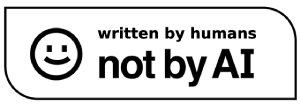This summer I had the opportunity to join the team at Co-op Food Stores in order to help them create their first annual Environmental, Social, and Governance (ESG) Report. For me, it was an experience filled with growth and learning. Reflecting on this period, I’m eager to share the insights and takeaways that shaped my summer and my understanding of sustainable business practices.
I entered into this experience without much knowledge of the complexities of ESG. I worked with a local clothing company in Maine, Mexicali Blues, helping them track and report their greenhouse gas emissions in the spring of 2024.
This role with the Co-op provided me with the chance to learn more about all of the other areas of operating a sustainably-minded business.
Building the Report
The Co-op, rooted in community-focused values, offered a unique perspective that allowed me to engage in both operational and strategic aspects of the business. The Co-op is a small-margin business with large goals and a culture that prioritizes its community. My role largely included informing stakeholders of those goals and the progress that the Co-op has made towards each of them, as well as their future strategic steps. Crafting this report involved a deep-dive into various data sets, stories, and alignment with industry standards.
Environmental Impact
Understanding the environmental footprint of the Co-op was a significant aspect of this report. This involved assessing greenhouse gas data from energy usage and inputting it into the University of New Hampshire’s tracking tool, SIMAP. I also looked at the Co-op’s efforts with waste management and the sustainable sourcing of products.
The environmental data we tracked will set an important benchmark, as the Co-op looks to become zero-waste by 2025 and net-positive emissions by 2030.
Social Impact
The social component of the report highlighted the Co-op’s commitment to community engagement & employee well-being. I appreciated the scale of the Co-op’s charitable efforts, and the attention to detail they are paying towards Diversity, Equity & Inclusion (DEI) as they go forward, and was inspired by the Co-op’s active role in its community.
Governance Impact
The governance section looked at the Co-op’s unique 12-person Board of Directors and the member participation that helps to elect them. It was interesting to learn about a business like this one, where the consumer has such a major impact, and the business is so uniquely tied to its community.
Key Takeaways
One major takeaway from my experience is the value of accountability and transparency within a business. The Co-op has genuine commitment toward its goals, and it’s important to be sincere to stakeholders about the work being done to reach them.
Especially as a small-margin business that may not be able to attack all of its goals at once, making progress when it happens is important.
This work also reinforced the importance of gathering different perspectives. I worked with people from ESG, Marketing, Merchandising, Facilities, Training, and Public & Government Affairs in order to lay out a clear and complete picture of the work that the Co-op is doing and the work that they plan to do in the future.
Looking Ahead
The next step is for this report to be used as both an internal and external resource for the Co-op. Internally it provides benchmark data for the Co-op to track and compare over the coming years as they move towards their goals. Externally it will inform Co-op membership and the community of the work being done, as the Co-op continues its journey as a sustainable business.
Ellis Tonkin is a rising senior at the University of New Hampshire. The Co-op hosted Ellis as a UNH Sustainability Institute Fellow for 10 weeks this summer.

